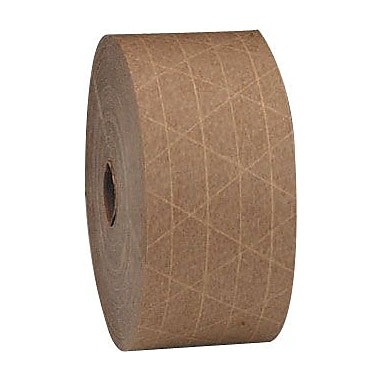More people are asking about the food I feed my cats, so I thought a blog post was in order.
The first thing I have to say, is it's not cheaper than buying food. If that doesn't deter you, then maybe this is a good option.
I first decided to go raw, after a lot of research, and agonizing over the cat's diets. I have three cats living here. Three cats, two humans.
I was feeding exclusively a specific brand of dry food when I started, due to the health needs of one of the three. In a house with 3 cats, they all get the same thing. I don't know how old any of my cats are, but I'm guessing that they must have been about 7 years old, when I weaned them off dry, and went to canned food. And maybe about 9 or 10 when I transitioned them to raw food.
I had been researching dietary needs of cats since I first brought them home in 2004. But no one seemed to have any thoughts on it. Multiple vets told me that nutrition was not focused on in their training. That exasperated me to no end.
Time passed, and I decided to at least get them all off the dry food. I was adding warm broth to the canned food, to make it more palatable and to take the chill off, when I used a partial can from the fridge.
They were fine with it, but I wasn't. I was feeding them some of the most expensive food you can buy. A highly recommended brand which all the research seemed to indicated was one of the best choices. Then one day I found a piece of shredded plastic in one of the cans. About two weeks later I found a piece of screen in a can.
I had been researching the raw diet, but had a little fear programmed into me about parasites and bacteria. But after finding non food in high quality pet food, I decided to stop wasting my money on something I could not be sure of.
There are raw cat food recipes and instructional videos on you tube. I started out using a recipe which called for approx 4 1/2 pounds raw chicken with skin and some bones, 1 pound raw chicken hearts and 1/2 pound raw liver.
They also recommended supplements. And even raw egg. I didn't add the supplements because, I have an friend who is an RN, with a background in nutrition who has done a ton of research on supplements, and the body's ability to use them. My intuition told me to stay as natural as possible--foods in their natural form. Which is the same rule of thumb I use for myself.
I opted against the egg, because one-they didn't like it, and two-I wondered how many eggs cats would be eating in the wild. I mean yes, birds have their eggs inside them before they lay, but they don't lay constantly like chickens do. They have a more natural cycle.
I eventually ended up leaving out the bones. I couldn't get them ground down to a fine powder, and the shards were causing then distress. Yes, cats are designed to eat mouse bones and bird bones, but chickens are for the most part, bigger than cats and they wouldn't be eating bones that big if they were on their own...in fact, they wouldn't really be eating chicken.
So with the raw diet, common sense is called for. And oh, yeah...good luck finding chicken hearts in quantity. It takes about 4 dozen hearts to make a pound. I get mine at a local organic farm. All the chicken I use is organic and local and comes plastic free. It takes a certain kind-a-crazy to do raw cat food to the degree I do it. But quantity might not be a problem if you only have one cat.
My current recipe is thighs and breasts (de-boned), with hearts and livers. For each 16-18 oz. raw meat, I add 4 oz. hearts and 2 oz. liver. I use the thighs because they need that dark muscle meat, and they are easily de-boned. I use the breast, because they are easily de-boned. Then I keep the wings and the legs to use for people food. I no longer add the bones or the skin (the skin was also too hard for them to deal with), but skin and bones go into the stock pot and I make enough bone broth to last the week for all of us.
I grind the thighs, breasts, hearts and livers and mix with one scant teaspoon salt for each pound. My weekly recipe of 4 1/2 pounds meat plus 1 1/2 pound organ meats comes out to 6 pounds of total food to which I add 2 scant tablespoons of salt (equal to 6 teaspoons).
I use Himalayan Pink Salt, which reportedly has 84 minerals. That's important to me, because I'm not adding supplements.
I grind the chicken, but these days, I'm leaving some small chunks of the meat (about a pound in chunks), because I want them to get the benefit of chewing their food. The act of chewing is not only good for the teeth, but releases certain enzymes to digest specific foods. And watching them eat, I think it helps them remember their instincts, which I feel is beneficial to their health and emotional well being.
After I have mixed all the meat with the salt thoroughly, then I put it in half pints and freeze it for the week. My three cats who range in size, go through about 3/4 of a pint of food a day, which I divide for two meals a day. But your cats will tell you what they need. Give yourself about 18 hours for a half pint of cat food to thaw in the refrigerator. I warm a little bone broth gently and use it to supplement the food and to take the chill off after being refrigerated.
Please use common sense handling practices. You're handling raw chicken. Make sure it's fresh to start. Process it quickly. Don't let it sit around in the open air for too long.
I don't think cold food right out of the fridge would be all that digestible. I don't let the food sit out to take the chill off, because that would invite bacteria. Instead I use the warm bone broth to do that. Think about how they would eat a freshly killed mouse. It would still be warm. That temperature is about right.
I have researched the parasite issue, and according to the information I found, if you're not feeding them the intestines, you shouldn't have too much to worry about.
It is my understanding based on the research I've done, that if your cat has healthy gut flora, it can handle most bacteria and parasites. But please do your own research for peace of mind and talk to your vet.
I am not a vet. I'm just sharing my own experience with the raw food.
One last thing...I mentioned gut flora, and I want to share an opinion, just something else to consider.
If your cat has been on processed food for a long time, and/or had antibiotics at any time, the gut flora may already be weakened to a degree. Go slowly. You don't want to overwhelm your pet's digestive system. Talk to your vet.
I transitioned my pets into the raw food very gradually. I started by adding a small amount of lightly cooked chicken in with the wet canned food I was feeding them, and gradually began transitioning away from canned altogether. When they got used to just the lightly cooked chicken and broth, then I began cooking it less and less. (Note: For cooked food, allow it to cool some before serving, so you don't burn them if they're over eager.)
Cats are designed to eat raw food.
I trust my cats to know what they need. It's been 3 years, and they do well on the raw food. I was worried about not supplementing their food, until I realized that my cats have access to mice. When they need something in their diet they know how to supplement for themselves. I have a fenced yard that is pretty cat proof. They can't get out, but small animals can get in.
It is completely natural for cats to eat small animals. The act of hunting sharpens their instincts, and probably provides them with a flood of beneficial biochemicals. I had to get over my human perceptions of squeamishness in order to allow my cats to express themselves naturally. Which as we all know leads to a healthier life. Also because my cats instincts aren't being suppressed, they don't really kill something unless they eat it. (Although,
Zoë brought me a garter snake one time. I thanked her and released it outside the fence, apparently unharmed.)
I know this post is kind of long, but hopefully you have some things to think about.
Do your homework, talk to your vet, ask yourself if you want to buy raw food already made from a local pet food supplier, or if you want to make it yourself.
And above all ask your cat what he/she wants.
















